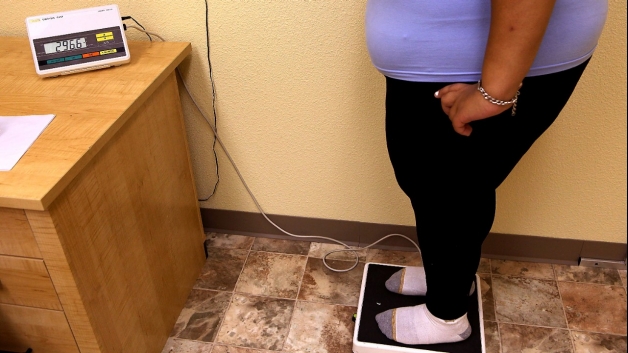We all know why it’s important for many of us to shed a few excess pounds. Packing on extra weight isn’t just about what you look like — your health can also be jeopardized. Being overweight or obese can increase your risk of developing certain cancers, heart disease, diabetes and other ailments. Most importantly, it can increase your risk of dying prematurely.

But where can you turn for help? What are the best resources?
Well, a controversial new study suggests that weight loss programs such as Weight Watchers will help you slim down more effectively than listening to a doctor. The year-long study, which was funded by Weight Watchers, found that people who followed Weight Watchers lost two times as much weight (11 pounds per year on average) as those who followed the advice of their doctor (5 pounds per year).
But before you get excited, NPR says to read the fine print:
Almost half of the study’s 772 participants dropped out before the year was out, and the reported results don’t reflect the dropouts, who probably had less success.
Also, the study was funded by Weight Watchers, which provided a year of free membership for each participant. (All the major diet plans typically fund their own research.) Fees for the program in the United States run about $40 per month.
Still, a commentary accompanying the article notes that in some parts of England, where the study took place, national health insurance already pays for Weight Watchers and other commercial weight-loss programs. That’s not true in the U.S., where people usually have to pay their own way.
On the flip side, a second study from Emory University in Atlanta suggest that paying for weight-loss programs for pre-diabetic baby boomers could save the federal government over one billion dollars in Medicaid costs down the road. Researchers looked at the YMCA’s Diabetes Prevention Program — a 16 to 20-week program that consists of group classes on nutrition and exercise to encourage people to lose 7 percent of their body weight — and found that it can drastically reduce people’s risk of developing diabetes.
NPR also reported:
People lost about 6 percent of their weight over six months in one study of the program, and sustained that weight loss for more than a year. Studies of the program have found that it reduces participants’ risk of developing diabetes by up to 71 percent.
If the federal government paid for overweight people in their early 60s to participate in the YMCA program, it would save the Medicare program $1.8 to $2.3 billion dollars in the following 10 years. “Those people would be healthier when they entered the Medicare program,” Kenneth Thorpe, an economist and professor of health policy at Emory University, told Shots. The study was published in the September Health Affairs.
For many people, health and fitness literacy are uncharted territory, so if there is anything to take away from these studies, it is that when it comes to adopting a healthier lifestyle, your doctor’s advice and support from experts who go beyond the fad diets are both crucially important. And remember — there’s no shame in asking for help and shelling out a little cash to improve your health.

